Apple's iPhones last longer in users' hands, with many years waiting before an upgrade. Meanwhile, Android users are switching their phones more frequently.
A growing number of iPhone users choose to keep their devices for extended periods. Based on CIRP's findings, about one-third of iPhone owners who purchased a new phone in the past year had kept their previous phone for at least three years.
The iPhone's longevity
When comparing the latest 2024 data on iPhone and Android users' smartphone retention patterns with earlier figures from 2023, it's clear that the trend of iPhone owners holding onto their devices longer continues to strengthen.
In 2023, about 29% of iPhone users kept their devices for three or more years, while 21% of Android users did the same. In 2024, the gap widened slightly, with one-third of iPhone users keeping their phones for three years or more.
Apple's strategy in recent years has focused on refining its devices rather than introducing groundbreaking new features annually. The shift has resulted in a product line that remains functional and relevant for longer, reducing the urgency for many users to upgrade.
Additionally, with Apple's shift toward installment-based financing, consumers feel less pressure to upgrade prematurely since payments are spread over a more extended period, making waiting before switching phones more attractive.
On an emotional level, iPhone owners often develop a deep attachment to their devices. Apple has successfully fostered a loyal customer base that strongly identifies with its brand, creating a sense of belonging and loyalty among its users.
For many users, an iPhone is more than just a phone — it's part of a broader ecosystem that includes services like iCloud, Apple Music, and the App Store. The attachment creates a sense of continuity, making it harder for users to part with their devices, even after several years.
Android users upgrade more frequently
In contrast, Android users tend to replace their phones more frequently. Only 21% of Android owners reported keeping their phone for three or more years, a stark difference from iPhone users.
The CIRP report indicates that 57% of retired Android phones are less than two years old, compared to just one-third of iPhone users who retire their devices within that period.
There are several reasons for the disparity. One of the most prominent is the diversity of Android devices on the market.
Android phones are produced by various manufacturers, offering users a broader selection of devices and features. As a result, Android users are more likely to upgrade their phones as new features and models become available from different manufacturers.
Furthermore, Android phones are often more affordable than iPhones, making it easier for users to justify upgrading to a newer model more frequently. Many Android phones fall into the mid-range or budget categories, where lower prices and shorter lifespans encourage faster turnover.
As a result, Android users may feel less financially and emotionally invested in their devices, unlike iPhone users, who tend to pay more upfront for their phones.
 Andrew Orr
Andrew Orr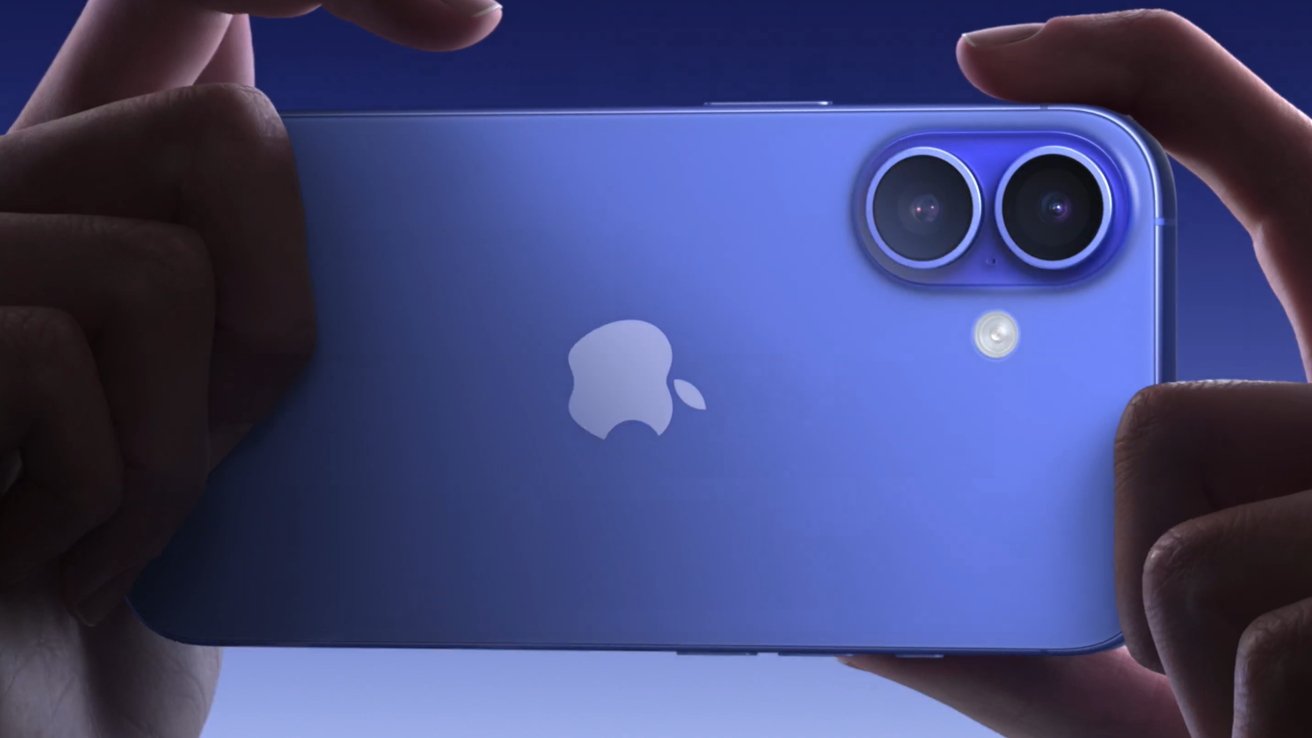
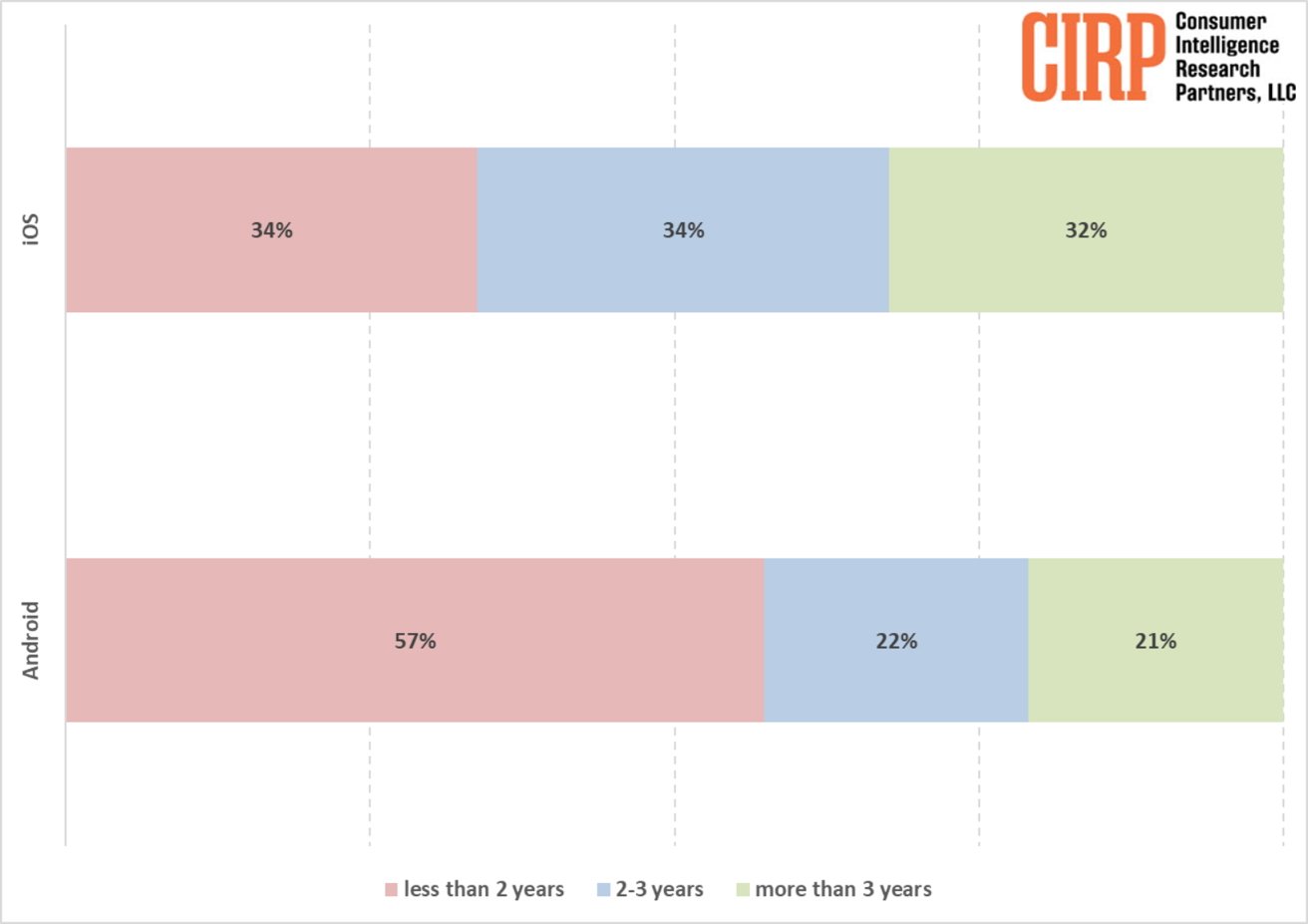




-m.jpg)


-m.jpg)






 Christine McKee
Christine McKee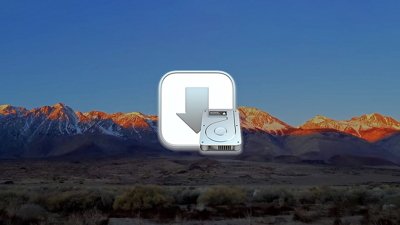
 Chip Loder
Chip Loder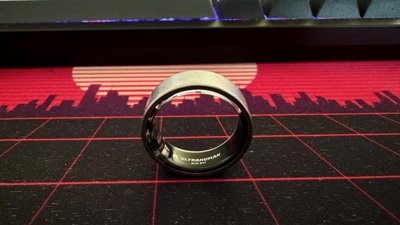
 Oliver Haslam
Oliver Haslam
 Malcolm Owen
Malcolm Owen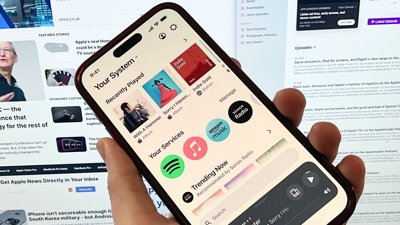
 William Gallagher
William Gallagher
 Amber Neely
Amber Neely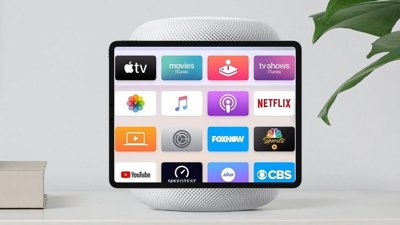
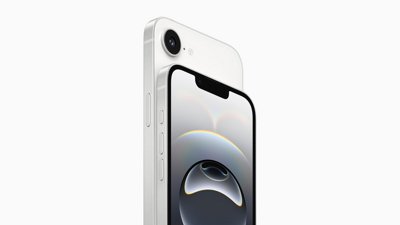
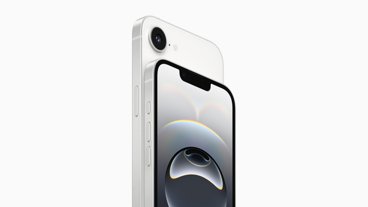







26 Comments
Maybe because iPhones have looked the same for about 5 years now? People used to buy new phones (also) to stay with the newest fahion.
I’m thinking there’s a couple of factors. The cost, I’f I’m paying $1500 for a phone I’m going to get my money’s worth out of it. Also though there’s a lot of crap Android phones out there. Where I used to work my boss used Android. He never spent much on the handset, and had to replace them yearly when they would break. He just assumed that all phones were like that and never put together that I used the same iPhone one for years.
Right now my iPhone 11 is about 5 years old, and you know what? I think I may very well go one more.
iPhones are a depreciating asset with a residual value. Whether you keep it for one year or four means that it costs you £40 per month or £20, i,e. a difference of 5 caffe lattes per month. People would happily spend this if the phones changed physically. People spend money on fashion!
Well, like my iMac and Apple Watch, I keep mine because they are useful for longer and it isn’t because iPhones are more expensive than Android phones. There are many Android phones out there just as and even more costly than iPhones. For me, Apple keeping phones up to date via software updates is the value in buying an iPhone.